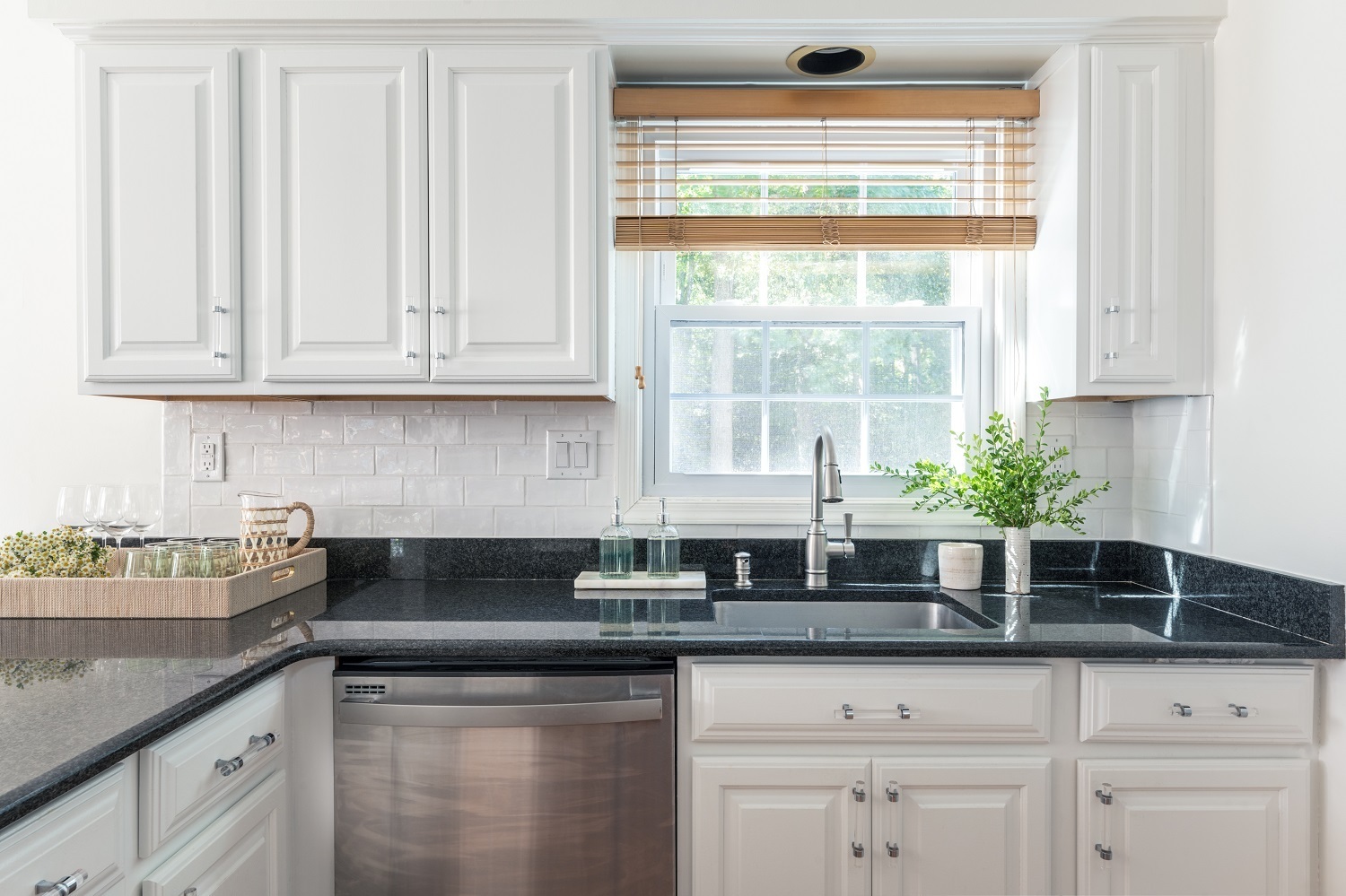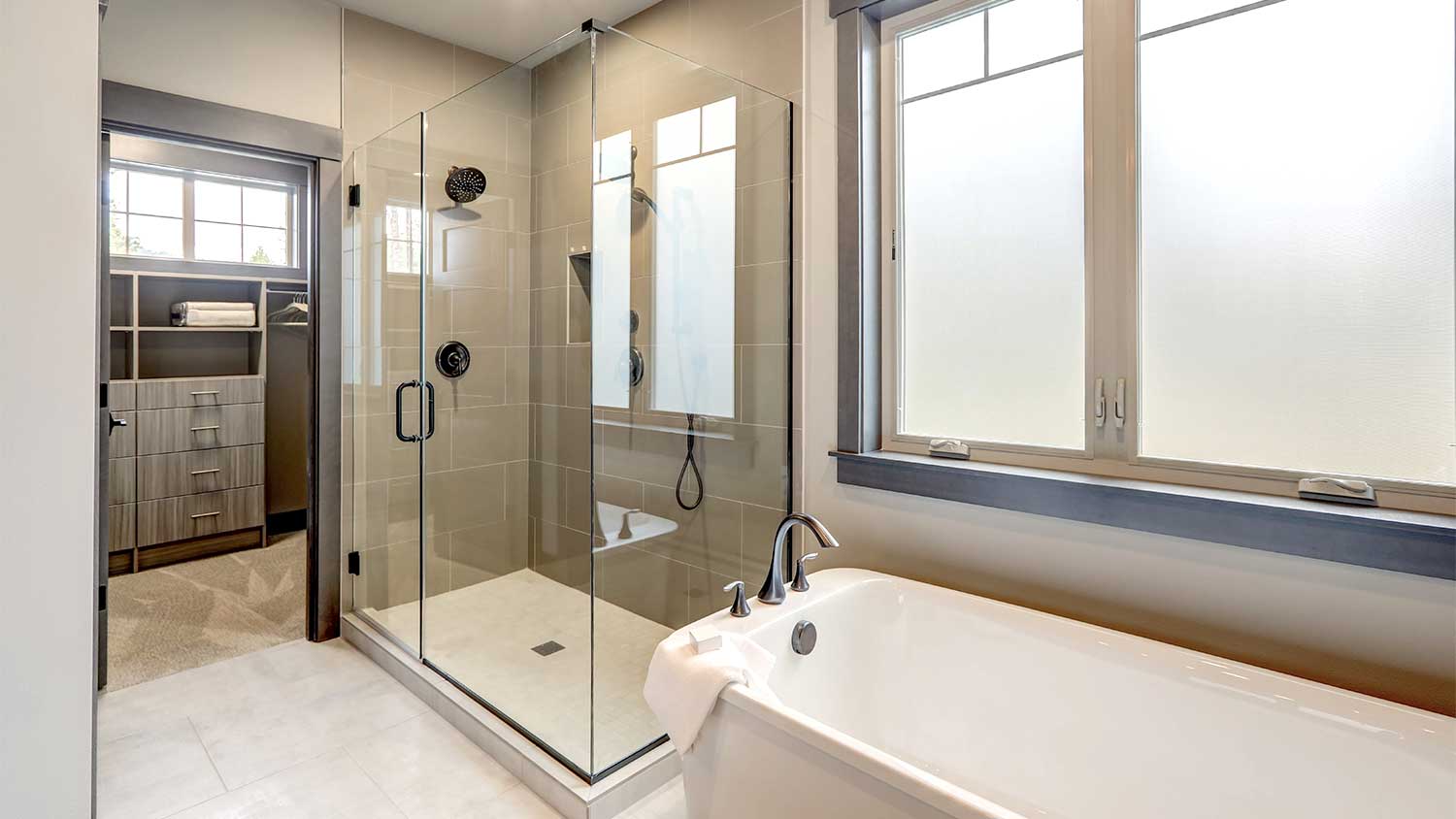How to Resurface a Bathtub
Transform your tub in an afternoon


- Respirator mask
- Masking or painter’s tape
- Drop cloths
- 400- and/or 600-grit wet/dry sandpaper
- Roller tray
- Bathtub refinishing kit
- Caulk remover
- Bleach
- An abrasive cleaning product
Whether you’re in the midst of fully remodeling your bathroom or your bathtub is just looking the worse for wear, DIY bathtub resurfacing is a great way to rejuvenate this essential appliance without spending a fortune.
Resurfacing your tub (also referred to as refinishing, reglazing, or recoating) is not a permanent solution to chronic bathtub issues but a major cosmetic upgrade that you can repeat every few years as needed. If your bathtub is cracked or stained, resurfacing is a significantly cheaper fix than fully replacing the tub or relining it—and a much simpler DIY job. It’s also often the only option for extending the life of an antique tub.
While there are many local bathtub refinishing services, you can also purchase an epoxy or glaze kit that will include all the materials you need to get your tub looking fresh and inviting again. It’s a straightforward job that does not require much experience, ultimately offering the most affordable way to give your tub a new lease on life.
Ventilate the Bathroom
The resurfacing process will create fumes that will become toxic in a high enough concentration, so make sure to ventilate the bathroom. Open all the windows and turn on the exhaust fan if you have one. If you can’t achieve the proper airflow, you will need to rent or buy a portable ventilation system. The average cost of a rental is between $50 and $90 per day, while a small confined space ventilator can be purchased for approximately $200.
Tip: While many DIY kits will include a respirator mask, you should use one even if your epoxy is marketed as “odorless” to avoid exposure to harmful chemicals.
Get the Bathtub Ready
 Photo: Pastor Scott / iStock / Getty Images
Photo: Pastor Scott / iStock / Getty ImagesBefore applying the new finish, you’ll need to get the bathtub prepared.
Make sure that the drain is in working order.
Remove all metal hardware from the tub, and scrape away any residual caulking and grout with a putty knife.
Thoroughly clean the tub, using an abrasive solution—and, if you have any mildew stains, with bleach and water as well. Finish with a solvent, like acetone or paint thinner to clear away any greasy residue—just be careful not to mix any chemicals, and rinse thoroughly between applications. Once it’s spotless, rinse with cold water and then dry fully with a cloth.
Repair any chips or cracks in the tub, and let the patching compound dry completely before proceeding.
Mask the Rest of the Bathroom
 Photo: BanksPhotos / iStock / Getty Images
Photo: BanksPhotos / iStock / Getty ImagesBathtub epoxy can leave permanent stains, so you’re going to want to cover the areas around the tub you’re resurfacing. Apply drop cloths and use a thick masking tape.
Prepare the Bathtub’s Surfaces
To ensure that there are no imperfections to the new finish, you’ll have to dull the old finish and roughen the full surface of the tub. This step is where it is most important to carefully follow the directions if you’re using a kit, as particular tubs and particular epoxies require different things.
Etching: Some refinishing systems include an etching powder that dulls the old finish in order to ensure that the new coating will properly stick. Sprinkle it over the tub’s full surface with a little water and then scour with an abrasive pad.
Sanding: Whether or not your system requires etching, you’ll need to thoroughly sand every inch of the tub to roughen the surface so that epoxy will fix firmly and not peel after drying. Use a wet/dry sandpaper of 400- or 600-grit—or, even better, do the first round with #400 and the second with #600.
Tip: Even if etching gets the tub surface appropriately rough, a round of wet/dry sandpapering is still necessary since otherwise, the etching powder can leave a chalk that will prevent the epoxy from adhering properly.
Priming: Some refinishing kits include a primer, while others include a self-priming epoxy. If (and only if) yours is the former, coat the tub in primer and let dry.
Apply the New Finish to Your Tub
If you’re using a two-part epoxy, first blend the resin and the catalyst as directed.
Using a nap roller, apply an even layer of epoxy, alternating between vertical and horizontal strokes. Begin with the sides of the tub, and then move down the horizontal deck, finishing with the bottom of the tub basin. Touch up any places the roller couldn’t reach using a foam brush.
Let the first coat dry per the system instructions—some will require a one to two-hour wait, while others you can recoat right away.
Once ready, apply the second coat in the same manner as the first.
Let Sit for 48 Hours
The epoxy will need time to cure before you run any water in the tub. Let it sit for 48 hours, or the length of time suggested in the instructions.
Clean Up
 Photo: Agency DER / Adobe Stock
Photo: Agency DER / Adobe StockOnce the new finish has safely dried, reinstall all the hardware you removed, clean up all masking materials, and enjoy your freshly resurfaced tub.
Tip: To preserve the quality of your new finish, avoid using abrasive solutions to clean the tub.
DIY Tub Refinishing vs. Professional Tub Refinishing
Hiring a bathtub refinisher will cost, on average, between $335 and $628. This is still much less expensive than fully replacing or relining your bathtub, which can easily run into the thousands. Compared to a DIY kit, which runs between $30 and $150, though, it is more costly.
In almost every case, the professional job will last longer and appear more natural than the results you’ll get from a home kit. If your tub is riddled with cracks or coated in serious rust, you may need to call in the pros to get the results you need. The same goes if you’d like to avoid repeating this process anytime soon and require a longer-term fix.
If, however, you just need a stop-gap measure before replacing the tub, don’t mind repeating the task every few years, or are mending an infrequently used guest tub, doing it yourself could solve your problem at a fraction of the cost.





- Bathroom Remodeling
- Kitchen Remodeling
- Shower Installation
- Stair Installers
- Bathtub Installation
- Shower Door Installers
- Kitchen Design
- Bathroom Design Companies
- Storm Shelter Builders
- Pre-Made Cabinets
- Kitchen Refacing
- Bathtub Replacement
- Ceiling Tile Installation
- Suspended Ceiling Companies
- Residential Designers
- Stair Builders
- Remodel Designers
- Shower Enclosures
- Home Renovations
- Kitchen Renovations
- Garage Remodeling
- Grab Bar Installation
- Walk-In Tub Installers
- Tub to Shower Conversion
- Balcony Contractors









